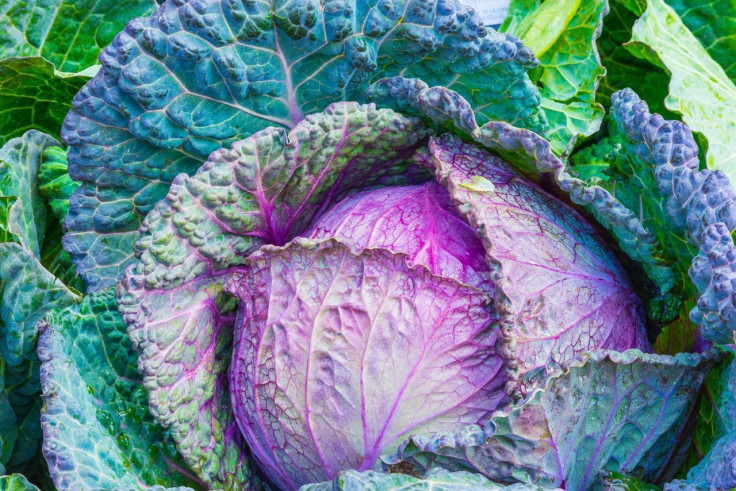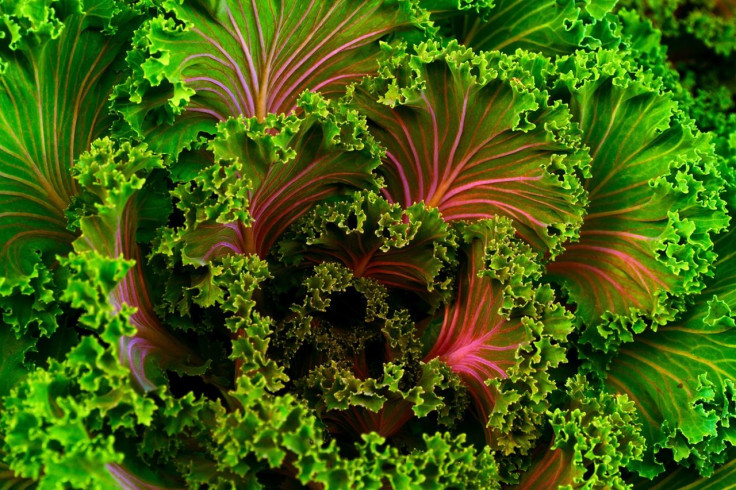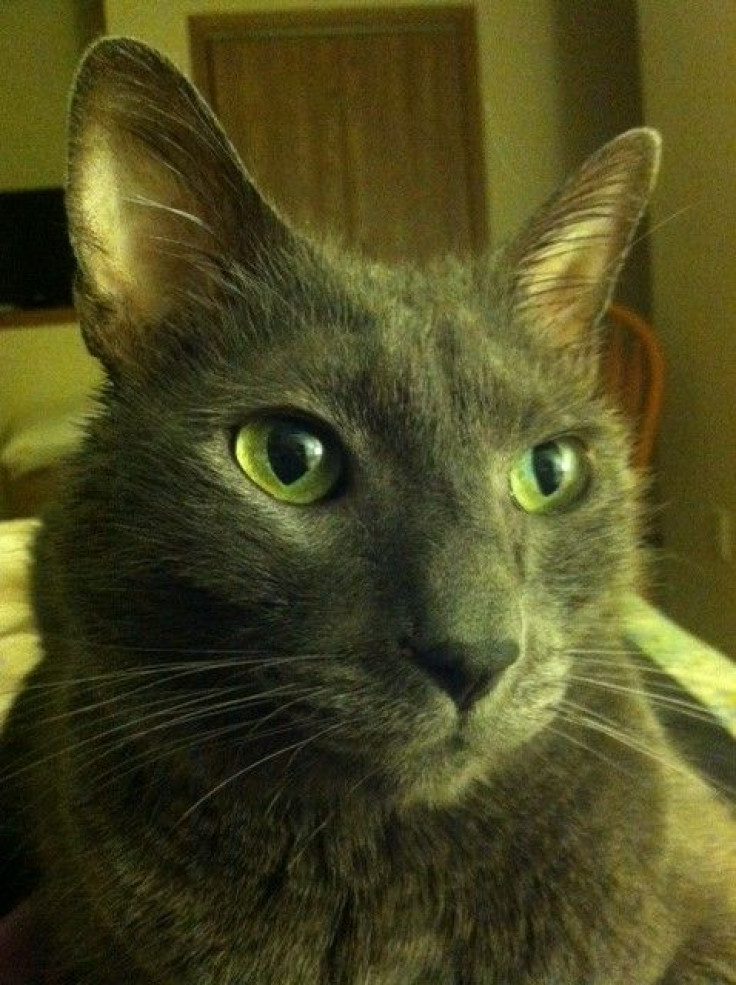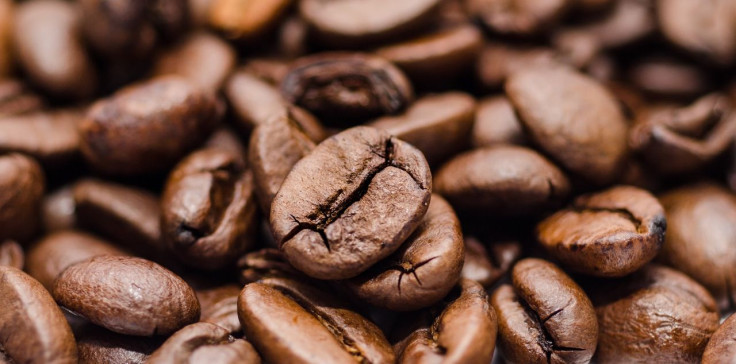Vegan Diet For Beginners: I Abstained From Eating Animal Products For A Month; Here's What Happened

Every morning for the past year or so, I asked myself the same question: Should I eat something healthy, or get the hash browns covered in cheddar and wrapped in pastry? The correct choice was obvious — I got the hash browns.
My breakfast habit was accompanied by mild shame in comparison to some of the other vices I’ve relished, which included a long period of smoking cigarettes. I started with cloves in high school (I was the lone weirdo who smoked clove cigarettes in a Midwestern town of Marlboro enthusiasts), inevitably moved to Marlboros, enjoyed a layover with American Spirits, had a short fling with Parliaments and ended back with Marlboros before finally quitting.
I’ve certainly enjoyed my wine, and no one has accused me of exercising too much, except for a wild period when I decided to run a marathon after years of no exercise.
Smoking and a fast-food diet were habits I developed to combat stress, but my anodynes have caused me more stress than the situations that drove me to use them in the first place. As an editor for Medical Daily, I read studies daily on the perils of unhealthy eating, smoking, and a sedentary lifestyle, so I’m constantly reminded of what bad habits do to our bodies.
If I wanted to avoid Alzheimer’s, emphysema, heart disease, and a list of 100 other ailments, I needed to get healthier — and then, to top it off, my boss asked me to become a vegan for a month-long health experiment. I said yes.
Read: Vegan vs. Vegetarian Diets: How Each Will Impact Your Health
Before I became a vegan, my bad eating habits extended beyond breakfast pastry. It’s too easy to go across the street to the food trucks selling Mexican food, or Thai noodles, or pizza. I am a woman tempted by both convenience and cheap comfort food. I’m not above drugstore sandwiches, and I have a particular weakness for potato chips, which technically would be allowed on this diet if they didn’t contain a dusting of processed cheese.
The parameters of veganism were clear: no animal products whatsoever. I also threw in a zero alcohol component because I wondered if one good choice — consciously picking foods that would nourish my body — would reinforce another positive change, or if I’d feel too deprived and cheat even more often.
The scientific literature is full of studies showing that one good choice begets another, and a slew of positive choices reinforce one another, so in theory, my plan had a strong foundation for success. A study from the University of California Santa Barbara showed that multiple positive (and enduring) improvements could be made in areas such as physical health, memory, and mood at the same time. The study suggests our brains are a whole lot more plastic, or malleable, than we think.
Unfortunately, while science says a lot of positive things about what humans are capable of doing, actually doing them is another story.

Week One
Whenever I start a new regimen, I have a strangely entitled feeling that cheating is allowed for a certain period of time. If I’m fasting for one day, I might actually eat breakfast. When I began training for the marathon a few years ago, I smoked for the first three weeks or so of my training. My co-workers had all donated funds to the charity for which I was running, but I still craved cigarettes.
My cheat this time around involved cream, which is so much easier to hide: No one can smell cream on your clothes or breath. I poured half-n-half in my coffee every day that first week, and I felt somehow that this was OK. I love coffee. I am purposeful in the way I drink it every morning. I achieve a meditative state as I boil the water, and measure the grounds, and fill the glass carafe of my French press. I didn’t want to put soy milk into that luscious beverage and watch as it separated into thin strands of saccharine-flavored waste.
Read: Here's What Happened When I Gave Up Sugar For A Week
By Day Three of my diet, I knew I could never become a full-time vegan because there is no adequate substitute for half-n-half.
The question of dairy had already been on my mind. About a month before I started my diet, I stepped into an alley on my walk to work and was almost hit by a passing van that belonged to a dairy product manufacturer. While I watched the van speed away, I thought, “Dairy is really bad for me and may someday kill me.”
That’s not an unfounded fear.
“There is a wealth of indirect evidence of very serious possible harms of consuming dairy foods, and, on the flip side, the evidence that milk prevents fractures is scant,” writes Thomas Campbell, an MD who founded a center dedicated to nutrition education and research, and who is also professor emeritus of nutritional biochemistry at Cornell.
Campbell writes that higher dairy intake has been linked to both increased risks of prostate cancer and ovarian cancer; dairy protein has been shown to increase Insulin-like Growth Factor-1 levels, and this has been linked to several cancers; and milk is probably the most common food allergy people report around the world.
There’s also some evidence that meat- and dairy-packed diets are linked to inflammation (a biomarker for cancer) and gut troubles such as colitis, NPR reported. Despite all this evidence, I decided to allow myself about one tablespoon of cream a day in my coffee. Austerity is bad for long-term commitment, and I didn’t want to deny myself everything pleasurable because I realized I’d quit this experiment, and fast.
I also had a bottle of wine that I felt should not go to waste; my roommate’s Italian guest who had been crashing on our couch for a week bought the bottle (an Italian red) and I felt it would be ungracious to let it sit for 30 days, given that open reds begin to spoil in three to five. At least, that’s what I told myself.
So I made the choice to finish the bottle of wine, and I woke with a headache each morning after I drank. This approach fits into the same category as needing to finish a pack of cigarettes before you can quit smoking, which is a known fact, even if it’s not scientifically proven.
Despite my wine and cream drinking, my successes outweighed and outnumbered my failures. I didn’t eat any meat all week, I avoided cheese, and I chose healthy salads packed with veggies for lunch every day. And by day seven of my diet, I had already lost three pounds.

Week Two
Midway into my second week on October 12, which happened to be Yom Kippur, the Jewish Day of Atonement, I headed to a doctor’s appointment to get a prescription inhaler for my lungs. I had an asthma attack the previous night, likely caused by a combination of seasonal allergies and the years of smoking. I was suffering the consequences of a bad habit on a holiday when people are expected to “afflict their souls” to atone for their sins.
I’m not really into afflicting my soul (and I'm not Jewish), but at this point in the experiment, I was feeling more motivated to make better choices. I cut out the morning half-n-half and bought almond milk, and ate bananas all week for breakfast. I chose tofu and chickpeas for my lunch salads, and snuck only one or two creamers into a late-afternoon work coffee.
Avoiding animal products — the conscious choosing every day of foods that were “allowed” — made it harder for me to divorce the idea of a substance that I put into my mouth, and the effect it had on my body.
In the past, I didn’t care much what junk food did to me. I used to attend a street fair on lower Broadway in Manhattan for one reason: Deep-fried Oreos. This might surprise you, but ... sidenote: Oreos are vegan. The snack tempted me from my high-rise office to a surly vendor on the street below. He dipped a zero-nutrient “cookie” into batter and then placed this bomb into a vat of hot oil. When the cookie was finished frying, he dusted powdered sugar on top as a final insult/flourish.
The first bite tasted amazing; it was rich, gooey, chocolatey. But I ordered three, and by the last bite, I was sick. I could almost see the fat globules traveling through my bloodstream in little pockets of future heart disease. And who ever felt good wiping grease off her mouth? It made me feel like a Viking, and not in an empowered, feminist way.

Eating Your Pet
In the course of avoiding meat, I became more aware that the chicken and beef I’ve enjoyed came from real animals that had to die to feed me. I used to walk by a market in one of my old neighborhoods in Brooklyn with an awning that declared it was a “Live Poultry Market.” The market was closed by then, but the awning showed pictures of both chickens and rabbits, which made me wonder who in Brooklyn was coming to this shop to get a live rabbit for dinner. Or a live chicken, for that matter. Did this shop, which looked like a regular storefront, sell to the general public, or did it send its live produce to restaurants? Was it even legal?
Every time I walked past that old market, I thought I heard the echoes of chickens past, squawking as they waited to die. I also remembered a reality television show where a woman adopts a pet chicken. It’s a very sweet story. The chicken even sleeps with her.
This woman’s pet chicken was spared, but 9 billion chickens per year are not so lucky, according to PETA. I love chicken, beef, and especially fish, but every day as I moved through our building’s cafeteria at lunch, looking for items that didn’t contain meat, I became more aware that these dishes I couldn’t eat contained products from real animals, some of which have the same level of consciousness as the cat with whom I snuggle every night, and who purrs in delight.
In a recent study out of the University of Oslo in Norway, researchers found that calling a meat product by the name of the animal — “cow” and “pig” instead of “beef” or “pork” — made study participants less willing to eat the meat, Medical Daily reported. Consciousness, by itself, may be enough to change behavior.
At the same time, I’m supposed to be making healthier choices for my own sake, and the Mediterranean diet, which allows small quantities of fish and meat, has been shown repeatedly to be one of the healthiest diets you can adopt. Most healthy diets include obvious choices such as vegetables and fruits and whole grains, but they also contain fish, for their Omega-3’s, and some poultry about twice a week, according to the Mayo Clinic.
We care more about what happens to animals when we’re confronted by their potential to feel pain and suffer: Cows suffer; beef doesn’t. But here is my personal dilemma — I love animal products. My actions, throughout my life, have often been irrational. Sometimes in movies, I care a lot more what happens to the pets than the people. This doesn’t make sense, and neither does my desire for meat when I love animals.
So I will probably still eat meat when this diet experiment is over.
Week Three
I journeyed one day a few blocks from my office in lower Manhattan to visit the lunch spot Terri, well known in the neighborhood for vegan food that doesn’t leave you feeling deprived. I was intrigued by their special “filet o’ fish,” which had been calling to me for weeks from a sandwich board on the sidewalk.
McDonald’s filet o’ fish has been a favorite of mine since childhood when my mom would buy it for me as a special treat on Friday evenings. I later discovered it’s not the restaurant’s most popular sandwich.
Years ago, I went on a double date, and for some reason (maybe it was late and nothing else was open?) we ended up at McDonald’s. Someone in the group muttered, “Oh God, there’s nothing more disgusting than a filet o’ fish.” I had been about to order that very sandwich. No sweat. I pivoted and ordered chicken.
Would the Terri version live up to my childhood memories of the naughty, fattening, nutritionless treat? The inside of the restaurant mirrors the food they serve — it’s tasteful and classy and decorated in vivid splashes of color. This is not the sort of place that has a jungle gym for children, or a life-size clown mascot leering from the corner.
Terri’s sandwich was for grown-ups. It involved a patty made from hearts of palm and cashew cream, vegan cheddar, and tartar sauce. It clocks in at 410 calories, contains 12 grams of protein, and is truly delicious, though it didn’t remind me much of fish. In comparison, the McDonald’s sandwich contains 379 calories and 20 grams of fat. Terri doesn’t provide information on fat content.
Unlike Terri’s nutritious, healthy fast-casual fare, vegan junk food also exists, and in three weeks of veganism I had found my share of vendors. A vegan pop tart became my new unhealthy habit for breakfast, and I ate one every day the third week. My favorite variety of pop tart is essentially apple pie. I bought this rich treat on my way to work, and I savored the (pie) crust, and the sugary apple filling, and I felt a little guilty and malnourished, though it didn’t bother my stomach in the same way as a bacon, egg and cheese on an everything bagel.
I could have eaten oatmeal with banana, or some kind of tofu scramble, or just a plain apple, but the pop tart tasted better. In my mind, I was making a powerful concession just by avoiding the cheddar-covered hash browns wrapped in pastry.
If I’m being honest, the pop tart is really a reward, and the part of my brain that gets involved when humans don’t get the rewards they want — the lateral orbitofrontal cortex — is probably over-developed.
One study that came out earlier this year investigated depression by scanning the brains of 1,000 people using MRIs. Researchers discovered that depression affects this same part of the brain, (the lateral orbitofrontal cortex), so depressed people feel a sense of loss and grief when they don’t get rewards. That area is also connected to the part of the brain involved with a person’s sense of identity, or self. So in theory, the depressed person feels terrible about herself when she doesn’t get the object of her desire, which could be anything from a boyfriend to a hash brown.
This theory may work in reverse as well, because I often feel terrible when I do get the thing I want, such as the pop tart or the fried Oreo.
Making good choices requires an eternal perspective. The lure of immediate satisfaction is strong, so I have to be more concerned with the future than I am with the present: I want the vegan pop tart now, but 20 years from now, the vegan pop tart will probably look like a bad choice that was wrapped in appealing pastry-flavored paper.
On the other hand, the pop tart isn’t the only thing I was eating all day. I still made healthy lunch choices from the salad bar.
My perspective was definitely short-term Friday night. I had tickets to an M83 concert, and I wasn’t supposed to drink alcohol. I have never attended a show sober before, and I didn’t really want to start, so I made a conscious choice to violate the diet rules (again) and drink a beer.
I had my beer in hand when the band began playing one of its more well-known songs, “Wait.” The song repeats the same lyric over and over: “no time, no time, no time.”
It’s hard to have an eternal perspective when you feel like you’ve run out of time. I didn’t become depressed that night, I just ordered another beer, and it was not my last. My night ended at 5 a.m. at Dunkin Donuts where I ordered a egg and cheese on a croissant, and savored every last bite of my processed junk sandwich. Unlike the mushroom bisque I’d had for lunch earlier in the week, it didn’t hurt my stomach a bit.
I committed other infidelities that week, both premeditated and by chance. I went to a conference on traumatic brain injuries and knew there would be free wine and I knew I’d have a glass. I also ate pastry puffs that my boss brought in from her favorite patisserie, and we both knew those things were off limits as I helped myself to two. I ate Doritos after a staff meeting, and I didn’t feel even a twinge of regret. They are my favorite chip, and I felt entitled to this small cheesy pleasure.
My lack of willpower may be a form of selfishness. One new theory posited by the folks at the University of Zurich says we lack self-control because we don’t even care about ourselves.
“People who exercise self-control can better imagine how their future self would respond, and therefore have a greater ability to put off gratifying the self in the here and now,” LiveScience reported.
So when I chose the cigarettes and the junk food all those years, I was selfishly ignoring my future self’s needs.
So which is worse: the vegan pop tart or the Doritos? I was still making bad decisions that affected my health, as I have all my life. Yet I found that even one better choice per day makes a difference. I usually feel a flash of irritation when I decide to listen to my better angel, but this time, I felt relieved when I chose something healthy.
Despite falling off the wagon, and sometimes intentionally rolling off, I continued my mostly-vegan diet, and I continued losing weight. I also felt lighter. I wasn’t perfect, but at least I was capable of saying “no” sometimes.

Week Four
By the last week of my diet, I was sick of a few things, including tofu and chickpeas. I never wanted to see another chickpea for the rest of my life. Marinated tofu isn’t great; I’d much rather buy plain and flavor it my own way. I also went to a potluck and just ate without asking any questions because I was too tired that day to care. I had spaghetti with tomato sauce, which probably was not fine, and rolls, which certainly were not.
I always get hungry around 3 p.m. I had both almonds and walnuts in my desk drawer to handle cravings that week, and it was like they weren’t even there. Instead, I went to the vending machine and got both Doritos (again) and sour cream ‘n’ onion chips. I realize I have a problem with potato chips, and I’ve known about this problem since high school. A friend’s mom used to stock her cabinets with Pringles just for my visits. I would eat an entire canister myself, but I never gained weight, so I never had much of a reason to control myself.
I did a 17-day fast once in which I eliminated 90 percent of the sugar in my diet, and then the night I broke the fast, I celebrated with red wine and cake. A fast intended to make me more mindful of sugar ended with an overload of sugar. But I’m not hopeless.
One morning early in the week, I grabbed a banana on my way out the door and ate it on my walk to the train. The sun was shining and I wasn’t feeling either greasy or stuffed from my meal the night before. The banana was perfect: bright yellow, spot free, firm and sweet. No monkey could have been happier to eat that piece of fruit. Healthy living has its benefits.
I was both sad and relieved to come to the end of my month-long experiment. Veganism at times felt like a cozy secret, even though my co-workers and several of my friends knew. The restaurant owners didn’t know, and the cashiers at the grocery store didn’t know. I had this thing, with myself, where I said no to meat and cheese, and butter and eggs. Just the knowledge that I avoided that list of products most of the time made me feel more in control, and it gave me a sense of satisfaction I hadn’t expected.
I noticed other positive changes. I used to struggle with itchy skin on my face, and that condition is almost completely gone. I wonder if it was an allergy to dairy.
Two days before I was allowed to break the fast, I came down with a bad cold, and whatever self-control I had disappeared with my health. I wanted Chinese food; specifically, egg drop soup and sweet and sour chicken, the same sweet and sour chicken that makes me feel sick when I’m all done. I ordered all of that plus an egg roll. I thought I was getting regular rice, but discovered the meal came with pork-fried rice — a final affront to veganism. The eating felt good, but as usual, I felt even worse after the meal. The next day, I resumed veganism, and then a day later, I was done.
I didn’t exactly go out strong, but I did finish. The experience reminded me of the marathon I quit smoking in order to run. I made calculated choices to stop running at points throughout the route in order to drink Gatorade, or eat a banana, or use the bathroom, because if I didn’t do those things, I would not have finished. By mile 22, I was walk-running at a 12-minute-mile pace. I practically crawled the last mile because I had a torn tendon in my knee and a hip injury. Was it selfish of me to finish the race, knowing how these injuries might affect my future joint and tendon health? The future was the last thing on my mind.
I remember looking at the faces of spectators who crowded the sides of the path in Central Park, cheering. By this time, four and a half hours into the race, they weren’t cheering as loudly and their voices were probably hoarse. I saw pity in their expressions, but also awe. My fellow runners and I may have been slow, but we would still get our finisher’s medal.
At the end of my Month of Veganism I knew that I was healthier and about 8 pounds lighter, even if I did eat French pastries and drink cream in my coffee, and eat a terrible (delicious) Dunkin Donuts sandwich after drinking beer until 5 a.m. Regardless of what M83 might have to say on the matter, I don’t think it’s ever too late to get a little fitter, or try a little harder, or eat a little healthier. I’m still going to enjoy the pop tart and the hash browns, but perhaps one or two days a week instead of five.



























